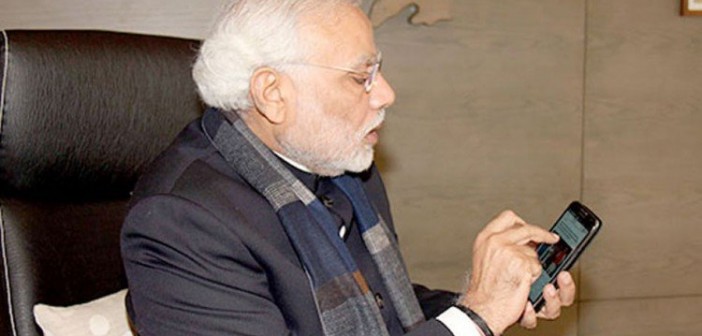This past week, Prime Minister Narendra Modi gave a speech kicking off “Digital India Week,” in which he highlighted India’s need for increased connectivity online and an advancement in electronics. India lags behind the rest of the world in a digital sense – according to the New York Times, it ranked 115th on connection speed. But the current government is one of the first to make a concerted effort to digitize the country, and the Prime Minister has called for “a digital revolution.” Below, we lay out some quick facts associated with the Prime Minister’s vision of a connected, technologically advanced India.
- Limited import of electronic goods: The Prime Minister asserted that, after oil, electronic goods are India’s largest import. Opportunity, then, lies in India’s ability to create its own electronic goods. He asked the crowd, “Why can’t we make quality electronic goods that are globally competitive?” His goal is to substantially cut the country’s imports by 2020.
- Empowering the people: Digital empowerment and education is a huge pillar of the campaign. Mr. Modi expressed that people need to be given the skills to excel in a digitally based society; he said that it is necessary to “volunteer time and effort to share digital skills.”
- Expanded access: Affordable access to internet, devices, and data packages will also play an essential role in India’s digitization, and fits into Mr. Modi’s goal to provide people – from all walks of life – with access to mobile networks and broadband. Initiatives under National Optical Fibre networks are also fundamental in order to provide all of the country with internet access.
- eServices: The Prime Minister announced the launch of eServices such as eHealth and eEducation as well as apps (i.e. weather report apps for farmers) that will streamline certain government services. These applications will allow users to gain access to things like online banking.
- A start-up mentality: The Prime Minister also expressed his belief that start-ups are the future of business, reminding the audience that many of the world’s most successful companies today were start-ups just years ago. He said that they are “the engines of exponential growth, manifesting the power of innovation.”
So far, industrialists and outsourcing companies’ leaders have pledged nearly $71 billion to put this lofty goals into action.

Image via The Hindu
If you like this article you may be interested in “Indian Rapper Takes on Unilever in Viral Video”.





